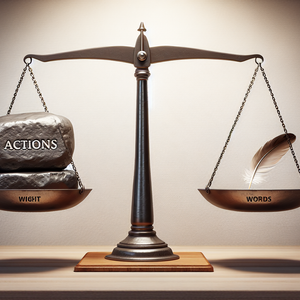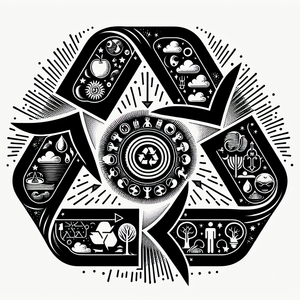Creative Ways to Use Your Tax Refund This Year

One of the most rewarding uses of your tax refund is investing in your future. Consider putting a portion of your refund into a retirement account, such as a Roth IRA or a traditional IRA. This not only secures your financial future but also offers potential tax benefits for the upcoming year. According to a report from the Investment Company Institute, individuals who consistently contribute to retirement accounts are more likely to achieve their financial goals. For instance, if you invest $2,500 of your tax refund into a Roth IRA at age 30, assuming a 7% annual return, you could accumulate over $30,000 by retirement age—an impressive return on a relatively small investment. Moreover, if you’re not ready to commit to long-term investing, consider opening a brokerage account to begin investing in stocks or ETFs. The earlier you start investing, the more time your money has to grow, harnessing the power of compound interest.
2. Enhance Your Skills or Education
Why not use your tax refund to invest in yourself? Consider enrolling in a course that enhances your skills or expands your knowledge in your field. Online platforms like Coursera, Udemy, and LinkedIn Learning offer a plethora of courses ranging from coding to digital marketing. According to a study by the Pew Research Center, individuals with higher education levels tend to earn significantly more over their lifetimes. By investing in your education, you not only increase your earning potential but also boost your confidence and career satisfaction. For example, spending $500 on a professional certification relevant to your career could lead to higher salaries and better job opportunities. Such credentials can act as a springboard for promotions, making your tax refund a powerful tool for career advancement.
3. Build or Strengthen Your Emergency Fund
Financial experts recommend having three to six months’ worth of living expenses saved in an emergency fund. If you haven’t reached that goal yet, your tax refund could be a perfect boost. An emergency fund provides peace of mind and financial security, allowing you to navigate unexpected expenses—such as medical emergencies or job loss—without falling into debt. A survey by Bankrate revealed that only 39% of Americans can cover a $1,000 emergency with savings. By allocating your tax refund towards your emergency fund, you position yourself to handle life's unpredictability more effectively. For example, if you receive a $1,200 tax refund, adding that to your emergency savings could provide significant financial breathing room.
4. Make Eco-Friendly Upgrades to Your Home
For those looking to make a positive environmental impact, consider using your tax refund to invest in eco-friendly home improvements. Energy-efficient appliances, solar panels, or even simple upgrades like LED lighting can significantly reduce your utility bills and your carbon footprint. The U.S. Department of Energy notes that energy-efficient upgrades can lead to savings of 10-50% on energy costs over the lifespan of the product. Additionally, some states offer tax credits and rebates for energy-efficient home improvements, providing even more financial incentive. For instance, installing solar panels may qualify you for a federal tax credit worth 26% of the cost, allowing your tax refund to work double duty by enhancing your home and reducing your tax burden.
5. Plan for Travel or Experiences
Instead of spending your refund on material possessions, consider allocating funds for experiences or travel. Research shows that experiences, rather than things, tend to bring more lasting happiness. Whether it's a weekend getaway, a culinary class, or tickets to a concert, investing in experiences can create cherished memories. Consider planning a trip to a destination you've always wanted to visit. Not only does travel broaden your horizons, but it also allows you to create lasting connections with friends and family. A survey conducted by the Journal of Positive Psychology found that individuals who prioritize experiences over material goods report higher levels of happiness and satisfaction. By investing in experiences, you enrich your life while using your tax refund in a fulfilling way.
While the temptation to splurge your tax refund on immediate desires is strong, taking a moment to consider more impactful uses can yield long-term benefits. Whether investing in your future, enhancing your skills, building an emergency fund, making eco-friendly home improvements, or planning enriching experiences, your tax refund can be a powerful tool in shaping your financial landscape. By embracing these creative ideas, you not only allocate your funds wisely but also pave the way for a more secure and fulfilling future. So, as tax season approaches, take a step back and think about how your refund can work for you in ways that go beyond the momentary thrill of a splurge.
Financial Advisor
Major banks, investment firms, financial planning companies
Core Responsibilities
Provide personalized financial planning advice, including investment strategies, retirement planning, and tax optimization.
Analyze clients' financial situations and goals to recommend appropriate financial products and services.
Stay updated on financial regulations and market trends to ensure compliance and informed advice.
Required Skills
Strong analytical and quantitative skills to assess financial data and create forecasts.
Excellent communication and interpersonal skills to build trust with clients.
Knowledge of financial software and tools for portfolio management.
Online Education Course Developer
Online education platforms like Coursera, Udemy, and universities offering online courses
Core Responsibilities
Design and create engaging online courses focused on professional development or skill enhancement.
Collaborate with subject matter experts to develop course content and learning materials.
Evaluate course effectiveness through feedback and assessments to ensure continuous improvement.
Required Skills
Proficiency in instructional design and e-learning tools (e.g., Articulate, Adobe Captivate).
Strong writing and communication skills to simplify complex concepts for learners.
Experience in a specific industry (e.g., finance, tech) to create relevant and impactful course content.
Financial Analyst in Renewable Energy
Renewable energy firms, government agencies, investment firms focusing on sustainable projects
Core Responsibilities
Conduct financial modeling and analysis to assess the viability of renewable energy projects.
Monitor market trends and regulatory changes impacting the renewable energy sector.
Prepare reports and presentations to communicate financial insights to stakeholders.
Required Skills
Strong understanding of financial analysis tools and techniques, including Excel and financial modeling software.
Knowledge of renewable energy technologies and market dynamics.
Excellent problem-solving skills and attention to detail to analyze complex data sets.
Sustainability Consultant
Consulting firms, NGOs focused on environmental sustainability, large corporations with sustainability departments
Core Responsibilities
Advise businesses on sustainable practices, including energy efficiency, waste reduction, and eco-friendly upgrades.
Conduct sustainability assessments and audits to identify areas for improvement.
Develop and implement sustainability strategies that align with company goals and regulations.
Required Skills
In-depth knowledge of sustainability standards and regulations (e.g., ISO 14001).
Strong project management skills to oversee sustainability initiatives from concept to execution.
Effective communication skills to educate stakeholders on sustainability benefits and practices.
Travel Experience Designer
Travel agencies, event planning companies, and experiential travel startups
Core Responsibilities
Curate and design unique travel experiences tailored to clients' preferences and interests.
Collaborate with local service providers to ensure high-quality services and memorable experiences.
Stay abreast of travel trends and emerging destinations to offer innovative travel solutions.
Required Skills
Strong organizational and planning skills to manage travel logistics effectively.
Excellent customer service skills to understand and meet client needs.
Knowledge of travel technology and booking platforms to streamline the experience process.


